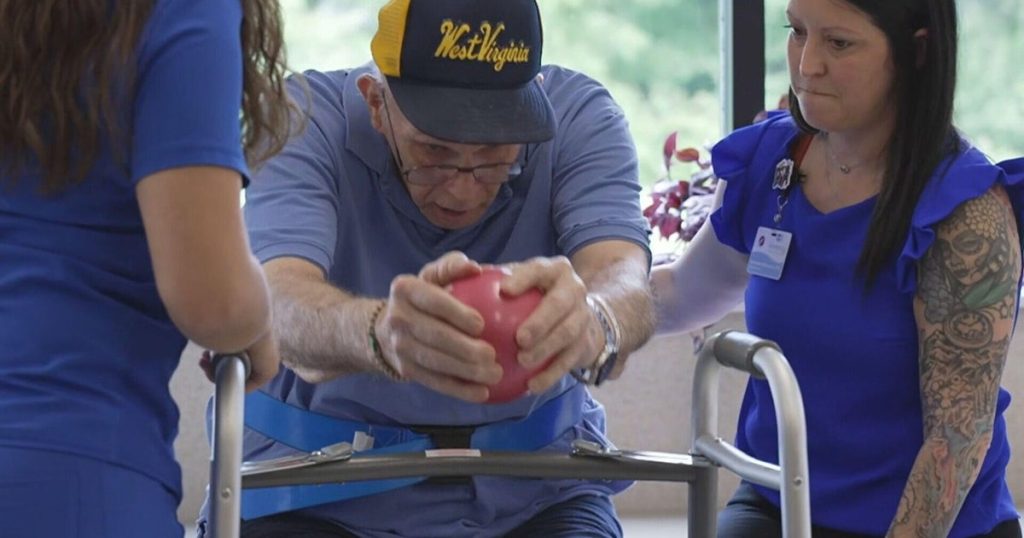In West Virginia, Medicaid funding is a crucial lifeline for many nursing home residents, including those in facilities like the Martinsburg Healthcare Center. A recent Senate-approved spending bill threatens to cut $930 billion from Medicaid over the next decade, raising concerns about operational viability for nursing homes and the welfare of their residents. Among the worried individuals is Senator Jason Barrett, whose grandmother resides in one such facility, highlighting the complicated balancing act of fiscal responsibility and care for vulnerable populations.
| Article Subheadings |
|---|
| 1) The Importance of Medicaid for Nursing Home Residents |
| 2) The Financial Implications of Medicaid Cuts |
| 3) Political Reactions and Concerns |
| 4) The Role of Local Officials |
| 5) Next Steps for the Spending Bill |
The Importance of Medicaid for Nursing Home Residents
Medicaid serves as a vital source of funding for nursing homes, particularly for the elderly and low-income residents. In West Virginia, statistics reveal that approximately 77% of nursing home residents depend on Medicaid for their long-term care needs. Nationwide, this figure stands at roughly 63%. Programs like Medicaid not only help cover the cost of basic services such as meals and medical supplies, but they also ensure that staffing levels remain adequate to provide quality care. It is essential for the health and well-being of this vulnerable population.
The Financial Implications of Medicaid Cuts
The proposed cuts outlined in the Senate bill could have catastrophic consequences for many facilities. With a staggering reduction of $930 billion over the next ten years, nursing homes may face o severe limitations on resources. Nancy Mason, who oversees the Martinsburg Healthcare Center, expressed her apprehension regarding how these impending cuts might impede their ability to maintain operational standards. “It helps to meet our operational expenses,” she said, referring to Medicaid. The potential repercussions could include reduced staffing, limiting personalized care for the elderly residents who rely heavily on consistent support and attention.
Political Reactions and Concerns
The spending bill has sparked debates among lawmakers about its myriad provisions and their long-term implications. Republican Senator Jason Barrett, who also visits his grandmother often at a nursing home, shared his concerns. He stated, “I don’t think we do that on the backs of nursing home residents,” emphasizing the need for a balanced budget while safeguarding essential services. The Senate vote, which narrowly passed with a 51-50 tally, displays the divisive nature of the matter. House Speaker Mike Johnson indicated a willingness to resolve concerns but left questions about potential amendments hanging in the balance.
The Role of Local Officials
Local officials play a significant role in representing the concerns of their constituents. Senator Jason Barrett is particularly concerned about the ability of West Virginian authorities to compensating the gaps created by federal budget cuts. He noted that filling in the financial void left by the spending bill would be “very crippling” to the state’s budget. With increasing pressures from both local residents and operators of nursing facilities, the stakes will only escalate as discussions surrounding the bill progress.
Next Steps for the Spending Bill
Following the Senate’s decision, the spending bill is set to return to the House for further deliberations. The House’s previous version proposed slightly smaller Medicaid cuts of approximately $800 billion over ten years. As legislators work toward a consensus, uncertainties linger over whether the latest version of the bill can be amended to lessen the impact on Medicaid funding. Speaker Johnson commented on the ongoing discussions, indicating that numerous legislators have voiced concerns and it remains crucial that these issues are addressed thoroughly.
| No. | Key Points |
|---|---|
| 1 | Medicaid is essential for 77% of nursing home residents in West Virginia. |
| 2 | Senate-approved cuts to Medicaid total $930 billion over ten years. |
| 3 | Operational viability of nursing homes is at risk due to funding cuts. |
| 4 | Local officials, including Senator Barrett, express concerns regarding the cuts. |
| 5 | The spending bill now moves back to the House for potential amendments. |
Summary
The potential Medicaid cuts highlighted by the recent spending bill represent a significant concern for nursing homes and their residents in West Virginia and across the nation. With senior care at stake, local officials are vocal about the challenges that could arise from reduced funding. As discussions continue in the House, the impact on vulnerable populations remains a critical topic among lawmakers, caregivers, and families alike.
Frequently Asked Questions
Question: Why is Medicaid critical for nursing home residents?
Medicaid provides essential funding for nursing home residents, covering costs such as meals, medical supplies, and staffing, ensuring that residents receive the care they need.
Question: What are the financial implications of the proposed Medicaid cuts?
The proposed cuts could lead to reduced staffing levels and diminished quality of care, placing critical financial burdens on nursing homes trying to maintain operations.
Question: What are local officials saying about the budget cuts?
Local officials, including Senator Jason Barrett, express significant concerns that the cuts could severely impact the state’s ability to support residents in nursing facilities, stressing the need to prioritize care while managing the budget.


